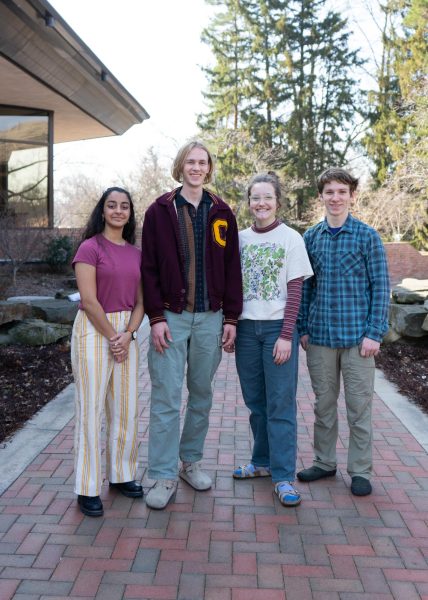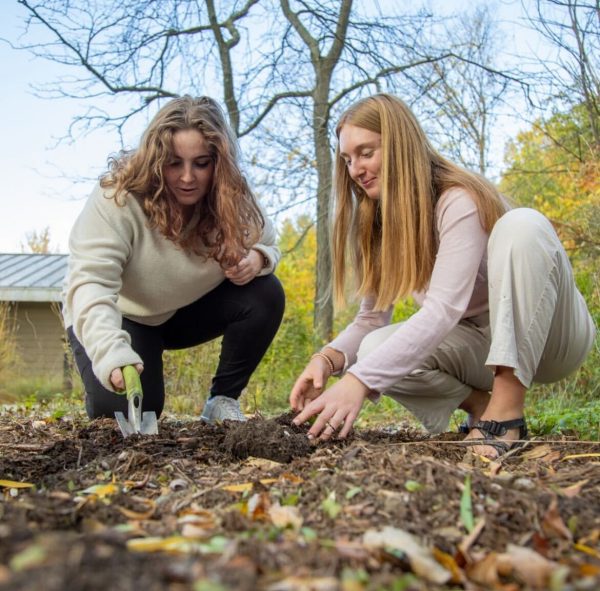Clean Water Institute of Calvin introduces new directors
The Clean Water Institute of Calvin (CWIC) introduced two new co-directors at an event on Tuesday. Hydrogeologist Stuart Dykstra, who is a Class of ‘84 alumnus, and chemistry professor Douglas Vander Griend are the institute’s new leaders.
Based out of Calvin University, the Clean Water Institute of Calvin is an organization that works to provide clean and accessible drinking water to communities in developing nations around the world. The institute draws on the expertise of professors across many different academic departments to find holistic solutions to water challenges.
CWIC has worked on projects in Jordan, Ecuador, Ethiopia, and Liberia. Each project presents unique challenges. Solutions have included reservoir restoration, sand filtration, filter distribution, and chemical disinfection.
The event included speeches from Dykstra and Vander Griend, as well as time for attendees to mingle while looking through the scientific posters that were on display.
In his speech, Vander Griend emphasized that access to clean water is a very complex issue, calling it a “knotty problem,” where there are many interwoven aspects and no “one size fits all” answer.
“But it’s also a solvable problem,” said Vander Griend.
According to Vander Griend, Calvin is “an organization uniquely suited to solve this problem” because of its wide variety of programs and emphasis on interdisciplinary work. “There’s always a technical aspect” he said, but noted that expertise in business, social work, and international relations is needed as well when working on water solutions.
Dykstra has previously worked with the United Nations, the World Bank, and various NGOs and has spent more than fifteen years working on international water issues. In his new role as co-director at the CICW, he is “excited about the fact that we can bring a wide range of people together a solution for clean water.”
While future plans are not yet finalized, Dykstra shared several possible projects that the CICW might take on. They are thinking about continuing a project in Honduras, which helps a coffee-growing community address water quality and scarcity. Another potential project is developing a sustainable management model for use in Haitian communities.
Dykstra encouraged all students who are interested in water issues to get involved with the CWIC. Students participate in the institute through on-campus research projects and off-campus interims, including a water systems engineering course in Ecuador and an interdisciplinary course in Ethiopia.
Correction: An earlier version of this article incorrectly spelled Stuart Dykstra’s name as Dykestra. Chimes apologizes for the error.






